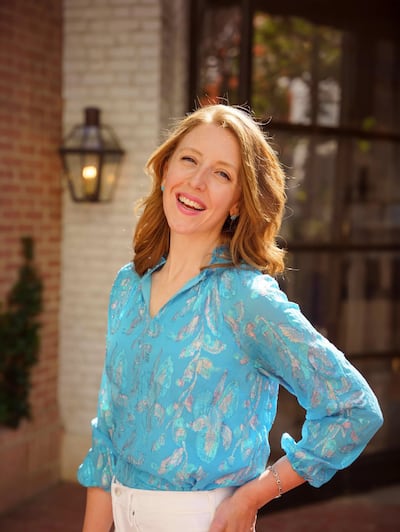Casey Means doesn’t have the typical background for a nominee to be U.S. surgeon general.
The biggest anomaly: She doesn’t have an active medical license. She also touts the benefits of drinking raw milk, which the U.S. Centers for Disease Control and Prevention says can cause serious illness. She has also expressed skepticism about vaccines.
And on a podcast hosted by former New York Times reporter Bari Weiss, Means said she became skeptical of traditional medicine while training at Oregon Health & Science University.
Means was a resident in otolaryngology (head and neck surgery) from 2014 to 2018, when she left in her fifth and final year “to focus on the real root causes of why Americans are so sick,” Means says on her LinkedIn profile.

“The most alarming thing I saw in hospitals was the simple fact that patients were not getting better,” Means told Weiss. “And everyone knows it.”
Means, 37, told Weiss that one patient in particular prompted her to drop her chosen profession after nine years of training. A woman arrived with debilitating headaches. She had seen 11 doctors and came in with a 5-inch stack of medical records. She had arthritis, prediabetes and high blood pressure, and was obese.
“Success criteria from the standpoint of my department and the hospital would be to get her in and out of my exam room in 15 minutes,” Means said. “There was no imperative, no incentive, and definitely no time or training for me to figure out how all these symptoms she had might be connected or how to fundamentally restore her health and well-being.”
OHSU doctors saw such approaches as too soft, she said.
“The literal unofficial mantra of my department was ‘Don’t be a pussy,’” Means said. “That was told to us all the time. When I was in the operating room as a 26-year-old intern, first-year resident, it was chanted to me as I was making my incision in the neck with a scalpel. And nothing is considered more of a pussy move in health care than nutritional interventions.”
The Los Angeles Times and Vanity Fair have reported a different version of events. Both publications say that Means left because the surgical residency was too stressful. They quote Dr. Paul Flint, who was chairman of the otolaryngology department at the time.
Flint didn’t immediately return an email seeking comment.
Two former residents who worked with Means at OHSU gave accounts that matched Flint’s, Vanity Fair said. A third told the magazine that he “thought she handled the stress of the program exceedingly well,” but the program wasn’t “the best fit” for her.
In a statement, OHSU said: “As a general practice, Oregon Health & Science University does not disclose employee or trainee information to the media beyond dates of employment and position held. Dr. Casey Means was a resident in OHSU’s Otolaryngology/Head and Neck Surgery program from June 15, 2014, to Sept. 26, 2018. Any additional information or comments provided by OHSU employees, trainees or students have not been authorized by the university and do not reflect a position by OHSU.”
Means is the author of The New York Times bestselling book Good Energy: The Surprising Connection Between Metabolism and Limitless Health.
Among her prescriptions: Stop eating refined foods, exercise and lose weight.
“Right now, we are eating ultra-processed, nutrient-depleted crap,” Means told Weiss on her podcast. “I find it very interesting that right now, the focus is on healthy at any size, or healthy at every size, when the actual movement should shift to the biologic reality of the situation, which is that we are unhealthy at every size in our country."
Means says American culture discouraged her, as a doctor, from talking about nutrition and fitness, another reason she chose a more alternative path.
“There was another social trend emerging that was disturbing, which was this inability to talk to patients about diet and exercise because it could actually be construed as elitist or ableist or even racist because, well, what if [people] can’t access healthy food in their neighborhood? What if they can’t walk? What if they don’t have a leg?”
Means is one of at least two former OHSU doctors who have joined the Trump administration. Dr. Vinay Prasad, recently chosen to run the Food and Drug Administration’s work on vaccines and biotech drugs, was an associate professor at OHSU from 2015 to 2020, when he left to become a professor of epidemiology and biostatistics at the University of California, San Francisco, according to his biography.
Like Means, Prasad has assailed traditional medicine, questioning the value of COVID-19 boosters for some populations. In August, he took aim at his predecessor, Dr. Peter Marks, for granting emergency approval for the jabs.
“The only `emergency’ America still faces with COVID-19 is that regulators like Peter Marks are either incompetent or corrupt to authorize a booster without clinical, randomized data,” Prasad said on X, formerly known as Twitter.
This reporting is supported by the Heatherington Foundation for Innovation and Education in Health Care.

